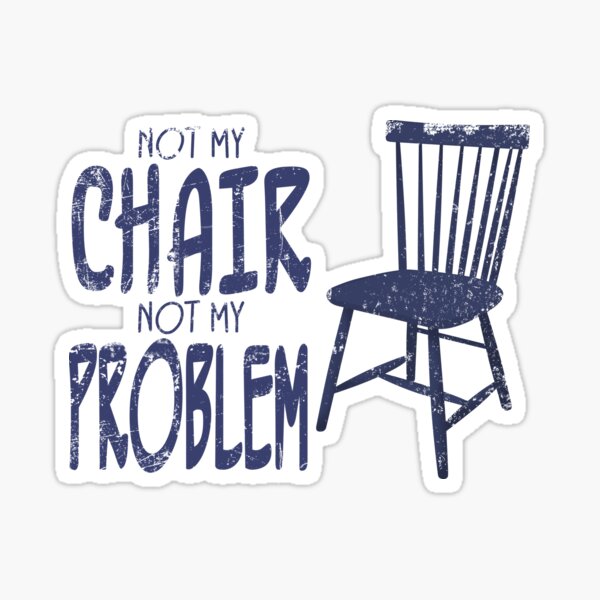In the dynamic landscape of the modern workplace, effective leadership entails not only guiding teams toward shared goals but also addressing and mitigating common challenges that can impede progress. One such challenge is the "Not My Chair, Not My Problem" mentality, a phrase often used to dismiss responsibility or accountability for issues that fall outside one's perceived scope of work. In this exploration of leadership lessons, we'll delve into the implications of the "Not My Chair, Not My Problem" mentality in the workplace and discuss strategies for leaders to address and overcome this mindset to foster a culture of ownership, collaboration, and accountability.
Understanding the Not My Chair Not My Problem Mentality
The "Not My Chair, Not My Problem" mentality reflects a narrow view of responsibility and accountability, wherein individuals prioritize their own tasks and objectives while disregarding broader organizational or team goals. This mentality can manifest in various forms, from employees refusing to address issues outside their job description to teams passing the buck when faced with challenges or setbacks. While it may seem innocuous on the surface, the "Not My Chair, Not My Problem" mentality can undermine teamwork, hinder problem-solving efforts, and erode trust and cohesion within the workplace.
The Impact on Organizational Culture
In organizations where the "Not My Chair, Not My Problem" mentality prevails, the consequences can be far-reaching and detrimental to overall performance and morale. When individuals prioritize their own interests over collective goals, it can lead to siloed thinking, communication breakdowns, and a lack of accountability for outcomes. Additionally, the perpetuation of this mindset can create a culture of passivity and disengagement, where employees feel disconnected from the organization's mission and purpose and are less motivated to go above and beyond in their roles.
Leadership Strategies
As leaders, it's essential to recognize and address the Not My Chair Not My Problem mentality proactively to foster a culture of ownership and accountability. One effective strategy is to lead by example, demonstrating a willingness to take ownership of problems and collaborate across teams to find solutions. Additionally, leaders can encourage open communication and transparency, creating a safe space for employees to voice concerns, share ideas, and take initiative to address issues collectively. By setting clear expectations, providing support and resources, and recognizing and rewarding collaborative efforts, leaders can reinforce a culture where everyone feels accountable for the organization's success.
Empowering Teams to Overcome Not My Chair Not My Problem
Empowering teams to overcome the "Not My Chair, Not My Problem" mentality requires a multifaceted approach that addresses both individual mindsets and systemic barriers to collaboration and accountability. Leaders can facilitate team-building activities, training sessions, and workshops focused on fostering a sense of shared purpose and responsibility. Additionally, creating cross-functional teams and assigning collective goals that require collaboration can help break down silos and encourage employees to take ownership of issues that impact the broader organization. By promoting a culture of empowerment, trust, and mutual support, leaders can empower teams to overcome the "Not My Chair, Not My Problem" mentality and work together toward shared success.
Conclusion
In conclusion, addressing the Not My Chair Not My Problem mentality is essential for cultivating a culture of ownership, collaboration, and accountability in the workplace. By recognizing the impact of this mindset on organizational culture and performance, leaders can take proactive steps to address it through effective communication, leadership strategies, and empowerment initiatives. By fostering a sense of shared responsibility and purpose, organizations can create an environment where every individual feels invested in the organization's success and is willing to go above and beyond to contribute positively to the team and the broader organization. Through leadership lessons and a commitment to addressing the "Not My Chair, Not My Problem" mentality, organizations can foster a culture of ownership and collaboration that drives innovation, productivity, and sustained success.





Comments